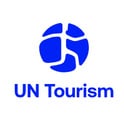“Rethink Tourism”: Sector Gets Ready To Celebrate World Tourism Day 2022
The countdown to World Tourism Day 2022 is now underway, with every part of the sector invited to be an active part of the annual celebrations.
With the theme of ‘Rethinking Tourism’, the International Day of Observance will this year focus on re-imagining the sector’s growth, both in terms of size and relevance. The Republic of Indonesia will host the official day (27 September), though all UNWTO Member States, as well as non-members and stakeholders from across the private sector, are being invited to host their own celebrations as well as to promote the day and its central theme.
UNWTO Secretary-General Zurab Pololikashvili says: “The potential of tourism is enormous, and we have a shared responsibility to make sure it is fully realized. On World Tourism Day 2022, UNWTO calls on everyone, from tourism workers to tourists themselves, as well as small businesses, large corporations and governments to reflect and rethink what we do and how we do it.”
World Tourism Day has been held on 27 September each year since 1980. The date marks the anniversary of the adoption of the Statutes of the Organization in 1970, paving the way for the establishment of UNWTO five years later.
RELATED LINKS
About UN Tourism
The World Tourism Organization (UN Tourism) is the United Nations agency responsible for the promotion of responsible, sustainable and universally accessible tourism.
As the leading international organization in the field of tourism, UN Tourism promotes tourism as a driver of economic growth, inclusive development and environmental sustainability and offers leadership and support to the sector in advancing knowledge and tourism policies worldwide.
Our Priorities
Mainstreaming tourism in the global agenda: Advocating the value of tourism as a driver of socio-economic growth and development, its inclusion as a priority in national and international policies and the need to create a level playing field for the sector to develop and prosper.
Promoting sustainable tourism development: Supporting sustainable tourism policies and practices: policies which make optimal use of environmental resources, respect the socio-cultural authenticity of host communities and provide socio-economic benefits for all.
Fostering knowledge, education and capacity building: Supporting countries to assess and address their needs in education and training, as well as providing networks for knowledge creation and exchange.
Improving tourism competitiveness: Improving UN Tourism Members' competitiveness through knowledge creation and exchange, human resources development and the promotion of excellence in areas such as policy planning, statistics and market trends, sustainable tourism development, marketing and promotion, product development and risk and crisis management.
Advancing tourism's contribution to poverty reduction and development: Maximizing the contribution of tourism to poverty reduction and achieving the SDGs by making tourism work as a tool for development and promoting the inclusion of tourism in the development agenda.
Building partnerships: Engaging with the private sector, regional and local tourism organizations, academia and research institutions, civil society and the UN system to build a more sustainable, responsible and competitive tourism sector.
Our Structure
Members: An intergovernmental organization, UN Tourism has 160 Member States, 6 Associate Members, 2 Observers and over 500 Affiliate Members.
Organs: The General Assembly is the supreme organ of the Organization. The Executive Council take all measures, in consultation with the Secretary-General, for the implementation of the decisions and recommendations of the General Assembly and reports to the Assembly.
Secretariat: UN Tourism headquarters are based in Madrid, Spain. The Secretariat is led by the Secretary-General and organized into departments covering issues such as sustainability, education, tourism trends and marketing, sustainable development, statistics and the Tourism Satellite Account (TSA), destination management, ethics and risk and crisis management. The Technical Cooperation and Silk Road Department carries out development projects in over 100 countries worldwide, while the Regional Departments for Africa, the Americas, Asia and the Pacific, Europe and the Middle East serve as the link between UN Tourism and its 160 Member States. The Affiliate Members Department represents UN Tourism's 500 plus Affiliate members.
UN Tourism Communications Department
+34 91 567 8100
UN Tourism
